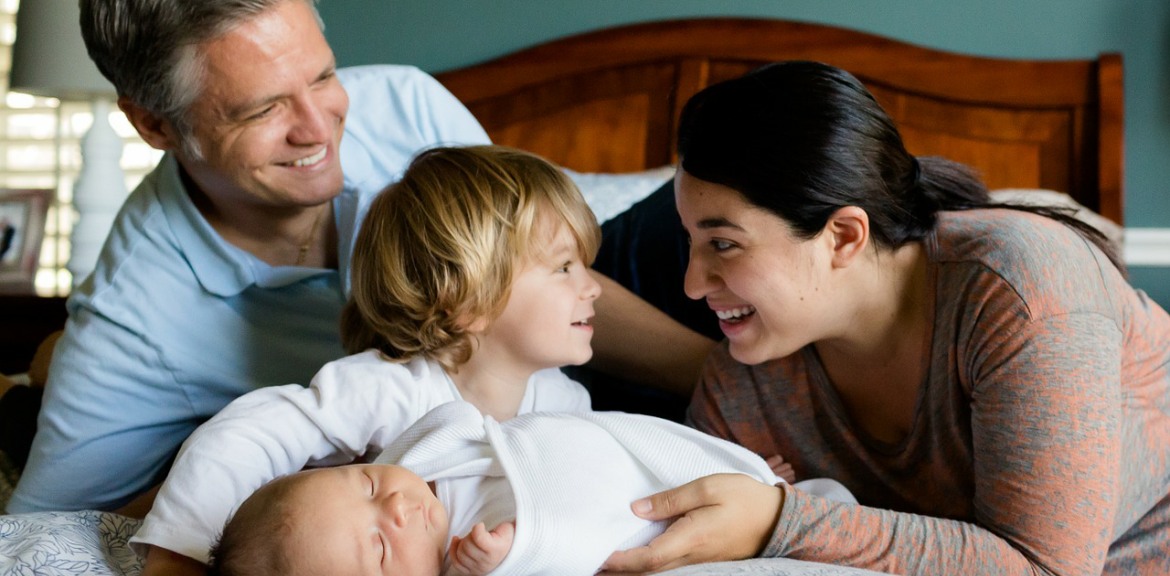God has much to say on how the family is to function. Children are to obey and honor their parents (Ephesians 6:1-2), wives are to submit to their husbands (Ephesians 5:22), husbands are to love their wives (Ephesians 5:25), fathers are not to provoke their children to wrath (Ephesians 6:4), parents are to teach and train their children (Proverbs 22:6; Deuteronomy 6:7), and the whole family should serve God (Joshua 24:15).
With all these moving pieces, how do we keep it running smoothly so that each member of the family not only understands his or her place, but can function in that place joyfully and effectively? When you throw in sin and Satan, how do we keep the family from breaking down? How do we keep our marriages strong? How do we raise good children? And how do we be the parents we should be?
God built into the family dynamic certain instincts and influences that act like lubricants to keep the family from falling apart. As long as these lubricants are understood and applied correctly, the family dynamic continues to function well, keeping our marriages strong and our children close.
These instincts and influences are not always universally true, but they are generally true. In the majority of the cases, you’ll find that these God-given instincts exert a particular force on our nature and thus the family.
With that being said, in the context of a Christ-centered family, we have a man, a woman, and their children. This is the family that I believe God ordained, and the particular instincts that we are created with have a symbiotic impact on each of these three elements. The dynamic of the family becomes more confusing, obviously, when you add in divorce, stepfathers, stepmothers, stepbrothers and sisters, and half brothers and sisters.
Each of the natural instincts discussed here will be attributed to the impact they have on the other members of the family. But each one will help you understand the overall dynamics, your personal role, and how your role interacts more fluidly with the other members of your family.
THE INSTINCTS OF THE FATHER OR HUSBAND
I believe that God created a man to have a need for a woman. God said that it is not good for a man to be alone (Genesis 2:18). This instinct or need to have a woman is strong within most men–but not all. In the years I’ve been counseling, I’ve found that single men struggle more than single women do. A woman has an easier time finding purpose and satisfaction in life than a man does.
Not universally true, I have certainly found it to be true in over a two decades of counseling and observation.
Conversely, a man is often less attached to his children than his wife is. In at least eight out of ten cases when there is a divorce, the mother gets the children and the father ends up paying child support. This in no way implies that a dad doesn’t love his children — most dads certainly do. But most fathers have an easier time walking away from the children for a prolonged period than a mother does.
If a child falls off the bike, the father is usually less compassionate than the mother is. He will say, “Shake it off, boy. Hope you didn’t break the cement. If it’s not broken, then there is no reason to cry.” The mother, often, will gasp in horror and run to the aid of her child while the dad fumes and worries about his son growing up to be a momma’s boy or a sissy.
I’m not advocating any of these reactions from either dads or moms. I’m just explaining the natural instincts that most men have in a family.
It is much easier for a dad to say no to a child than it is to say no to his wife. He finds it easier to deal with nagging children than he does with a nagging wife. According to Genesis 3, a husband has a drive to provide and protect his family. If either of these instincts become jeopardized, he has a tendency to withdraw from the family.
THE INSTINCTS OF THE MOTHER OR THE WIFE
The wife, in most cases, has a stronger attachment toward her children than she does for her husband. Honestly, if the house is on fire, she will only recall her husband after she has verified that her children are safe. The average mother will fight harder to keep the children than the father does in the case of a divorce.
The average mother will be more sympathetic toward her children than toward her husband. She will also have a tendency to put the children completely first in her life — sometimes to the exclusion of her husband. She will worry more about her children, and in the event of a divorce, she will often be content with just her children. And she may desire to get into another relationship, but it won’t be as strong as a man’s need or desire to find another woman.
She can find security in her children easier than her husband can.
In Genesis 3, God curses the woman in three very distinct ways. These curses, as with the curses for the man, are meant to balance the family now that sin has entered the family dynamics.
Genesis 3:16 – Unto the woman he said, I will greatly multiply thy sorrow and thy conception; in sorrow thou shalt bring forth children; and thy desire shall be to thy husband, and he shall rule over thee.
- Multiply thy sorrow (heartache). It is true that the sins and mistakes of the children weigh heavier on a mother than they typically do on a father. This attachment — even when her children reach adulthood — can cause her much sorrow.
- In sorrow (pain) thou shalt bring forth children. Every mother knows the physical pain of childbearing.
- Thy desire shall be to thy husband, and he shall rule over thee. The Scriptures do not say, “for thy husband,” but towards. The stronger desire of a mother rests largely with her children. As we shall see, however, the children typically desire dad more than they do mom as far as their natural attachments are concerned. This is part of the curse that allows a man to rule over his wife. He, often more than she, has the heart of her desire — the children. I believe this is one of the key reasons for God’s command to a wife to submit to her husband. If she does not, the children, more than anyone else, run the home.
THE INSTINCTS OF THE CHILDREN
On average, a child will be more inclined to be closer to dad than to mom. Again, this isn’t always true — especially in the case of an abusive father or a strange stepfather.
But when is the last time you heard on the playground, “My mom can beat up your mom”? No, you hear, “My dad can beat up your dad!”
In many cases, the child wants to grow up and be like dad rather than mom. It certainly doesn’t mean that the child doesn’t love mom; it is just an instinct that I believe God has built into our children.
The emulation of a father is a stronger instinct than the emulation of a mother.
THE IMPACT THESE INSTINCTS HAVE ON THE FAMILY
These instincts produce two separate forces within the family. These forces have immediate and lasting impact on the other parts involved. If you want to understand your family better and how it is to function, you need to understand these elements.
The two forces are:
- Desire
- Influence
THE IMPACT OF DESIRE
Our instincts create a desire that works in a circle. For example the desire in a typical family runs this way:
Husband to Wife — Mother to Children — Children to Father
Typically, the husband’s desire is stronger for his wife than for his children. Not that there is no desire for his children, but that the desire and need for his wife is stronger. I’ve rarely counseled a wife who felt jealous over the attentions her husband gave the children. I have counseled many marriages where the husband was jealous over his wife’s greater attention to the children than to him.
A mother often has a stronger desire for her children than her husband, and a child often has a stronger desire for dad than mom.
So desire runs in a circle.
THE IMPACT OF INFLUENCE
Because desire runs one direction, the power of influence, by necessity, runs just the opposite. Influence within the family is strongest over the one who desires you more. It runs this way:
Wife over the Husband — Father over the Children — Children over the Mother
A wife has more influence over her husband than she does her own children. She’ll have an easier time impacting his actions than the actions of her own children. Conversely, a father often has more influence over his own children than he does over his own wife.
Since the children desire dad more than mom, dad has an easier time getting his children to listen and obey. Interestingly enough, there is not a single reference in the Bible where it is commanded that the mother train and teach the children in the home. It is always dad’s job, and this is why.
The children seem to have more influence over mom than dad. Not true in every case, it is certainly true in most. A child has an easier time getting mom to give in than dad. A child will be able to play off the emotional desire of mom more so than dad. In many homes, the wife is not submissive to her husband, so he retreats from the family and robbing the kids of their greatest influence. Because Dad is out of the picture, the kids have an easier time influencing mom, so for many families, the children run the home.
CONCLUSION
These instincts produce two forces that have dramatic influence within the family. Understanding these instincts and thus the impact these instincts have will give you a starting point to help fix problems.
Maybe dad needs to take more of a hand in the children’s lives. Maybe mom needs to realize that her marriage is more important than her children — putting the marriage first for the sake of her children. Or maybe the parents need to get on the same page with the discipline or the dad needs to take a more important role in the discipline. Perhaps mom shouldn’t always strive to bail out her kids from dad’s discipline. Maybe the wife needs to recognize the need her husband has for her. Perhaps you shouldn’t let the children run the home.
For the dynamics of the family to function properly, everyone must leverage the desire and influence that comes with their particular role. There are many facets and angles that could be explored here.



